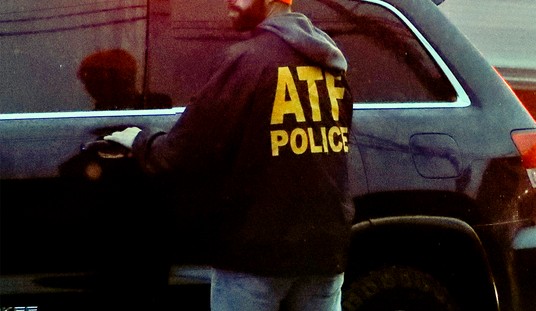The author of the December 27 New York Times article that data-matched North Carolina criminal records with the roster of concealed handgun permits discussed his methods, motives with Human Events.
“I was very, very careful not to draw conclusions that couldn’t be drawn from the data. I tried to explain, here’s what I found in the data, comparing five years’ worth of criminal court cases against the CHP database,” said Michael Luo, the Times reporter and the author of other articles on guns and society.
Luo wrote in his article that of the 240,000 permit holders, eight were found guilty of committing murder or manslaughter with a gun and that 2,400 holders were convicted of felonies or misdemeanors, excluding traffic violations.
“Is 2,400 people convicted of crimes a lot or a little? I left that up to readers to decide,” he said. “It’s only a small percentage of permit holders that have committed crimes.”
The small number of concealed handgun permit holders involved in crime does not mean that gun ownership deters crimes, though, he said.
“The typical demographic profile of an average permit holder–a middle aged white male–is not a major driver of violent crime. Nor are they the ones most likely to be victimized by crimes,” he said.
“The question, though, comes down to, are the crimes that the minority of permit holders commit outweighed by the deterrence effect and episodes of crimes being thwarted that also exist,” he said.
“The problem, though, is these anecdotes of crimes being stopped by permit holders is basically impossible to track in a systematic way,” he said.
Luo said he reached out to F. Paul Valone, the president of the pro-guns group Grass Roots North Carolina, for help getting real-life examples of permit holders in the state using guns to protect themselves or others.
“I did want to include an anecdote of a crime being stopped by a permit holder. This is why I practically begged Valone to help me with this. I confess I didn’t have much time and needed his help,” he said.
Valone told Human Events that he was disappointed that after roughly a dozen emails and phone calls,
Luo did not quote him, although he did acknowledge that he did not provide the examples that Luo asked him for.
The GRNC board of directors discussed whether Valone to provide examples, but there was a lack of trust, he said. “It was the consensus of the board that ‘No good can come of this.”
Luo said the quotes that Valone gave him dealt with details about the law, that Valone told him he helped draft, such as that permit records and driving records were linked to help law enforcement, such as a policeman on a traffic stop know whether the driver might have a gun.
The other quotes from Valone dealt with his challenging his data, Luo said.
“Paul’s basic overall response to me was he didn’t believe my data,” he said.
“I had no interest in quoting some gun control group either. They wouldn’t be speaking from any place of knowledge either about the data, because they hadn’t done the work themselves,” he said.
“He pointed to the low number of revocations and said he personally monitors news accounts of crimes in the state and he knew of just one example of a permit holder committing a crime,” he said.
“Obviously, that isn’t exactly scientific. I contemplated quoting him saying that, but I decided that wouldn’t serve him, or me,” he said. “So I left it out.”
The reporter said, “It wasn’t meant to convey that there aren’t genuine examples of people who have stopped crimes with their concealed handguns. The story itself acknowledges that these examples are real but just can’t easily be tracked in a systematic way.”
In the article and in his comments about the article, Luo said the crime statistics on North Carolina concealed handgun permit holders was a wash because the data showed only a small number convicted of crimes, but since middle-aged white men, who are rarely found on either end of a crime, are the ones signing up for permits.
But, the data-match also revealed a significant number of permits holders keeping their permits after their felony convictions, a violation of federal law. The Gun Control Act of 1968 revokes gun rights for felons, and that revocation has been expanded to include those sentenced to jail for more than one year and those named in domestic violence complaints.
“For some reason, all these people convicted of felonies and violent misdemeanors did not have their have their permits revoked,” Luo said.
“I think the part we can all agree on is that there is a problem with the system in NC in which felons and other violent misdemeanants are not getting their CHPs revoked,” he said.
Responding to the Times article, Valone said none of the blame for felons, and others who might have reasons their permits pulled, lies with gun owning community.
“Nothing in the law prevents the North Carolina Department of Justice from doing regular checks on permit-holders to ensure they remain in compliance with the law, nor would we oppose such an effort,” he said.
“If the state fails to avail themselves of those tools, the problem lies not within the concealed handgun law, but instead within its enforcement,” he said.
Luo said he was just the messenger. “Is that the arresting agency’s fault? Is it the state bureau of investigations? I spent some time trying to sort that out in some of the anecdotes I cited, but in the end I decided it wasn’t that important to get into details. Instead, I should simply point out these failures existed.”
In the days after the article was published, North Carolina law enforcement officials have announced they will reform the their systems for revoking concealed handgun permits belonging to felons and others.








Join the conversation as a VIP Member